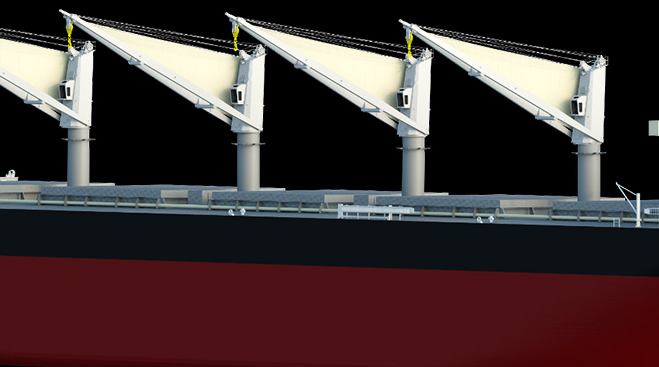Japanese shipping company MOL shake hands with Vale International SA to conduct a joint study on the installation of a wind propulsion system on a 200,000-ton in-service bulk carrier, which mainly transports iron ore for steel production.
The joint R&D project aims at reducing greenhouse gas (GHG) emissions from vessels while underway, by unfurling the sail placed on ship such as triangular parts of existing cargo handling cranes to use offshore winds to provide additional propulsion force.
Many MOL drybulk-operated vessels are equipped with cargo handing cranes, and the company plans to study the installation of the Delta Sail on a broad range of ship types, such as bulkers, wood chip carriers, and multi-purpose vessels.
What is more, under the project, partners will examine and verify the number of rotor sails to be installed and the effect of GHG reduction, working closely with Anemoi Marine Technologies, the UK-based manufacturer of rotor sails. To remind, Anemoi installed the world’s first rotor sail on a newbuilding Ultramax bulk carrier in 2018.
Concluding, the study is in line with the MOL Group’s environmental strategy. The carrier is implementing five initiatives to realize the mid-to-long-term targets set out in the MOL Group Environmental Vision 2.1. Including this opportunity, the company intends to pursue one of the initiatives “Enhancement of Energy-Saving Technologies” and continually strive to reduce GHG emissions in cooperation with companies in various industries, with the goals of achieving net zero GHG emissions by 2050.

































































